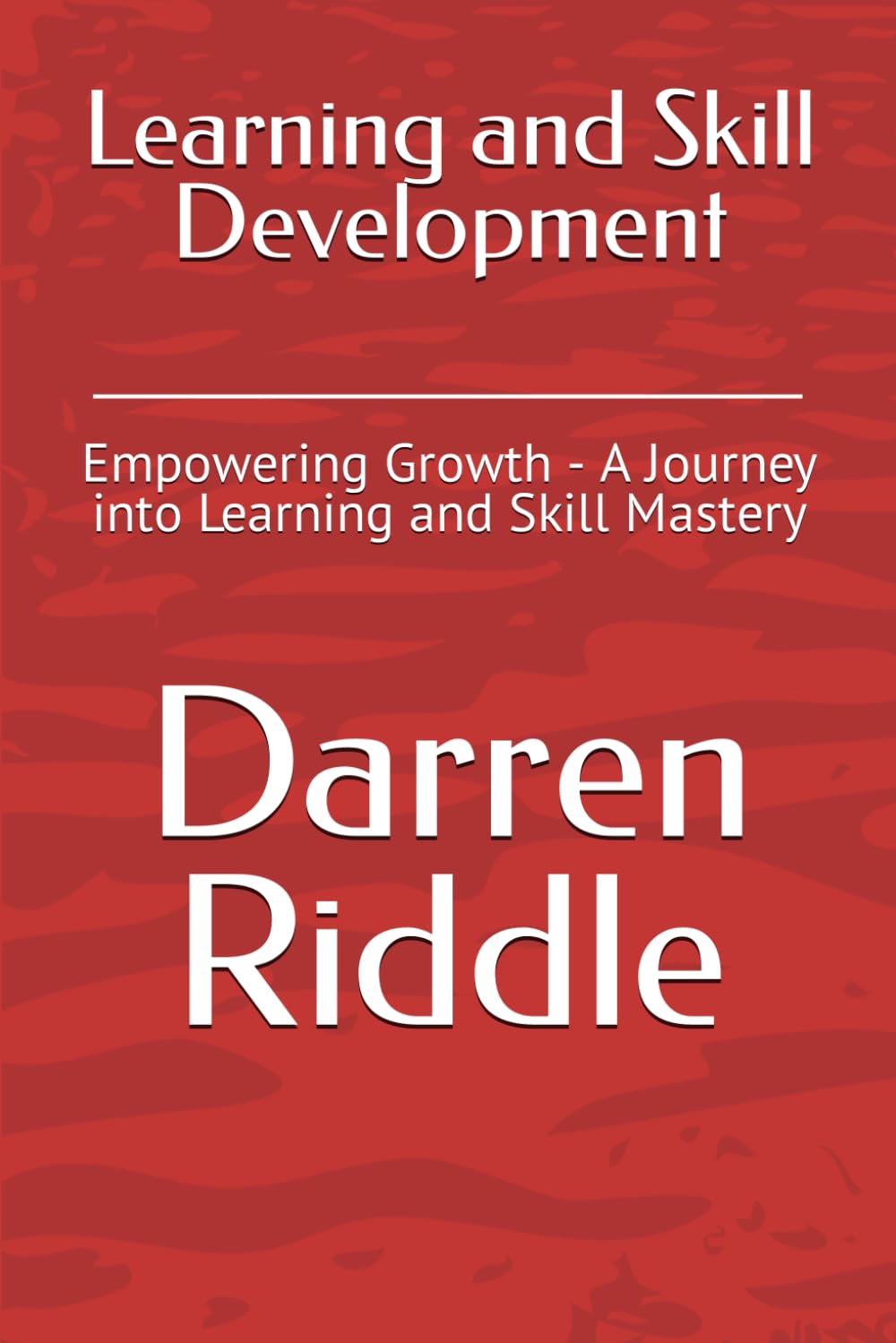



Learning and Skill Development: Empowering Growth - A Journey into Learning and Skill Mastery
-
£27.18
£28.33 -
£10.58
£12.58 -
£16.71
£17.13
Reviews & Ratings
Importance and BenefitsLearning and skill development are pivotal elements in navigating the complexities of modern life. Whether in the realms of education, career advancement, or personal enrichment, the ability to acquire new knowledge and refine existing skills is indispensable.
At its core, learning empowers individuals to adapt to change, overcome challenges, and seize opportunities for growth. The benefits of embracing a continuous learning mindset are manifold.
Enhanced cognitive abilities, improved problem-solving skills, and increased creativity are just a few of the cognitive benefits. Moreover, learning fosters resilience in the face of adversity, cultivates a sense of accomplishment and fulfillment, and expands one's horizons by fostering curiosity and intellectual exploration.
From a professional standpoint, the value of skill development cannot be overstated. In today's dynamic job market, where technological advancements and market demands evolve rapidly, individuals must proactively acquire and refine skills to remain competitive and relevant.
Lifelong learning not only enhances employability but also opens doors to new career opportunities and advancement possibilities. Overview of Key ConceptsWithin the realm of learning and skill development, several key concepts provide a framework for understanding and optimizing the learning process:1.
Learning Theories: Various theoretical frameworks, such as behaviorism, cognitivism, constructivism, and connectivism, offer insights into how individuals acquire knowledge and skills. Understanding these theories enables learners to leverage effective learning strategies tailored to their preferences and objectives.
2. Motivation: Motivation serves as the driving force behind learning endeavors.
Whether intrinsic or extrinsic, understanding the factors that motivate individuals to learn is essential for maintaining engagement and persistence throughout the learning journey. 3.
Effective Learning Strategies: From active learning techniques to metacognitive strategies, a repertoire of effective learning strategies exists to facilitate comprehension, retention, and application of knowledge. By employing these strategies strategically, learners can optimize their learning outcomes.
4. Skill Development Framework: A systematic approach to skill development involves identifying core competencies, setting clear learning goals, and designing structured learning plans.
This framework provides a roadmap for acquiring and honing skills in a deliberate and purposeful manner. 5.
Assessment and Feedback: Assessment methods, both formative and summative, play a crucial role in gauging learning progress and identifying areas for improvement. Additionally, timely and constructive feedback serves as a catalyst for growth, guiding learners towards mastery and proficiency.
In essence, this introductory chapter lays the groundwork for exploring the multifaceted realm of learning and skill development. By recognizing the importance of lifelong learning and familiarizing oneself with key concepts and principles, individuals can embark on a journey of self-discovery, growth, and empowerment.
. .
Frequently Bought Products
Product Queries (0)
Login Or Registerto submit your questions to seller
Other Questions
No none asked to seller yet
-
£27.18
£28.33 -
£10.58
£12.58 -
£16.71
£17.13
Bookiyos Books Solutions - Quality Books, Unbeatable Prices
Bookiyos Books Solutions is your premier online bookstore offering a vast selection of over 5 crore books. Whether you're looking for the latest releases, timeless classics, or rare finds, we have something for every reader. Our platform serves customers worldwide, including the USA, UK, and Europe, with fast delivery and easy return policies to ensure a hassle-free shopping experience. Discover daily updates, exclusive deals, and a comprehensive collection of books that cater to all your reading needs. Shop with confidence at Bookiyos, where quality books and unbeatable prices meet.
Why Choose Bookiyos?
Extensive Inventory: New, old, and rare books available.
Fast Delivery: Same or next-day shipping.
Easy Returns: Hassle-free refund and return policies.
Global Reach: Serving customers in the USA, UK, Europe, and beyond.
Daily Updates: Thousands of new titles added every day.
Join our community of book lovers and start your literary journey with Bookiyos Books Solutions today!







